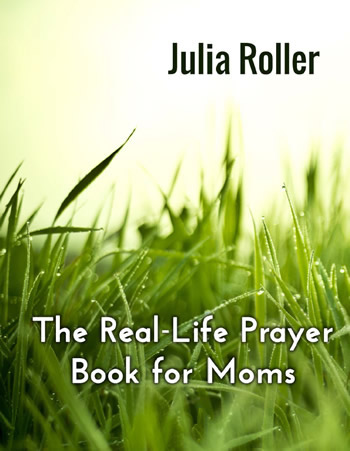 Childbirth is an exciting and terrifying prospect. For each of my three pregnancies, as my stomach grew larger, so did my anxiety and dread about the birth itself. Just as the marriage is more important than the wedding, the baby is more important than the birth. Yet at the same time, when you hit 8 months or so, it sinks in anew that if you want to meet that baby, you’re going to have to give birth.
Childbirth is an exciting and terrifying prospect. For each of my three pregnancies, as my stomach grew larger, so did my anxiety and dread about the birth itself. Just as the marriage is more important than the wedding, the baby is more important than the birth. Yet at the same time, when you hit 8 months or so, it sinks in anew that if you want to meet that baby, you’re going to have to give birth.
I decided early on that I wanted to have a natural childbirth if possible. I had read Naomi Wolf’s Misconceptions, the story of her two traumatic birth experiences and the sad state of childbirth practices in the United States compared to the rest of the developed world (much higher rates of cesarean sections and even maternal mortality), and Ina May Gaskin’s stories of natural and even joyful births on her midwifery farm.
In nothing I read about natural childbirth was any Christian imagery or ideology mentioned. It seemed to be the assumption that natural childbirth went hand in hand with goddess imagery that at times made me very uncomfortable. I wanted to have a natural childbirth because it seemed to be better for the baby and less likely to lead to cesarean section or other complications and also because, I’ll be honest, I’m stubborn and I wanted to prove I could do it.
I was lucky enough to be able to have all three of my children without medication, not because of my terrific stamina or courage but mainly because I was able to delay going to the hospital long enough for all three children that by the time we got there, things were so far along that interventions seemed unnecessary to everyone. (Truly, it’s not a bad strategy, although a little stressful for Dad.)
My births weren’t traumatic like Naomi Wolf’s or those of many of my friends who struggled through complications and emergency surgeries, and the techniques I learned in my Hypnobirthing classes worked reasonably well, yet I would have liked to have had a more Christian framework in which to place them. I felt very close to God in the awe and gratitude and joy I experienced when I held my new babies, the most precious gifts I have ever received, but throughout my labors my prayers were more about survival than about focusing on the spiritual aspects of the labor process.
If only I’d had Aubry G. Smith’s book, Holy Labor. Smith, a doula, marries the natural childbirth movement to Christian theology.
First, Smith takes hard aim at the widely-held idea that pain in childbirth is inevitable because of “the curse” of Genesis 3:16a, translated in NRSV as “To the woman he said, ‘I will greatly increase your pangs in childbearing; in pain you shall bring forth children.'” Smith points out that God only “curses” the serpent, by removing the serpent from God’s presence. Neither the man nor the woman is “cursed.” She further argues that the first phrase is likely about the anxiety and worry many women go through around conception rather than childbirth itself, and that the second phrase is less about physical pain than hard work, similar to the “toil” a few verses later with which the man will now farm the land. She suggests, “I will increase your anguish in conception and childbirth, and with strenuous labor you will give birth to children” (pp. 23-4) as a more accurate translation.
Although Smith is very supportive of natural childbirth techniques, she also demonstrates empathy for those who make other birthing choices or who, like Wolf, just aren’t able to have the type of births for which they hope and plan. She points out the many times in the Bible that birth is used as a metaphor for our entry in the Christian life, a metaphor that redeems all birth stories, no matter how traumatic or un-goddess-like they are. Every birth reminds us of the hope we have through our new life in Jesus. Through birth, we are able to work alongside God to bring new life to the world, a process that can be filled with suffering and joy in equal measure.
Smith also describes the limitations of the goddess imagery so common in natural childbirth narratives. It’s hard to feel like a goddess when the reality is your body is exhausted and feels like it’s breaking down or if something goes wrong and you’re not able to have the birth for which you hoped. And I recognize myself in her words about why she wanted to have a natural childbirth: “I wanted to be a superior mother. I wanted to be someone who could handle the ‘most painful thing in the world’ and then display my birth story as some sort of a victor’s trophy. I also thought God would be more pleased with me if I did things ‘his way,’ so I was determined to earn his love and approval by avoiding an epidural. Being in a lot of pain seemed more spiritual” (p. 125). Ouch, but true.
Instead of thinking about childbirth as a spiritual trophy to prove our worthiness, Smith suggests various spiritual disciplines at the end of each chapter to help both expectant and new mothers focus their hearts on God.
And in the end, she offers these sage words: “I think Jesus is much less concerned with whether women have epidurals, elective C-sections, or orgasmic deliveries in the woods than he is with the hearts of the women giving birth” (p. 128).
Most importantly, her words help to redeem childbirth as spiritually meaningful rather than inevitably painful.
This book will appeal to expectant mothers but also women who hope to become pregnant or have already had children and are looking for a Christian framework of redemption for their childbirth experiences, whether positive or traumatic.


